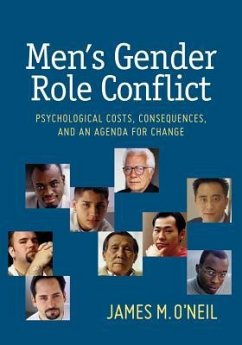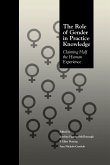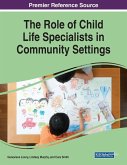Men's gender role conflict is a psychological state in which restrictive definitions of masculinity limit men's well-being and human potential. Gender role conflict (GRC) doesn't just harm boys and men, but also girls and women, transgendered people, and society at large. Extensive research relates men's GRC to myriad behavioral problems, including sexism, violence, homophobia, depression, substance abuse, and relationship issues. This book represents a call to action for researchers and practitioners, graduate students, and other mental healthcare professionals to confront men's GRC and reduce its harmful influence on individuals and society. James O'Neil is a pioneer in men's psychology who conceptualized GRC and created the Gender Role Conflict Scale. In this book, he combines numerous studies from renowned scholars in men's psychology with more than 30 years of his own clinical and research experience to promote activism and challenge the status quo.
Hinweis: Dieser Artikel kann nur an eine deutsche Lieferadresse ausgeliefert werden.
Hinweis: Dieser Artikel kann nur an eine deutsche Lieferadresse ausgeliefert werden.








